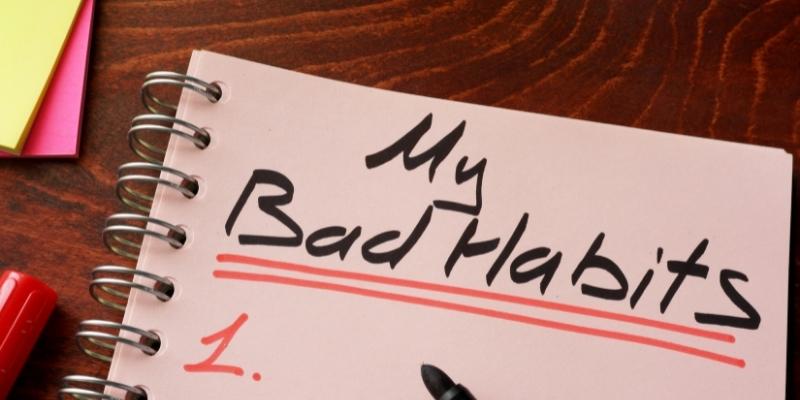
Do you have bad money habits? If so, you’re not alone. A lot of people struggle with managing their finances properly. In fact, many people make a lot of common mistakes when it comes to money.
In this blog post, we will discuss 32 bad money habits examples that you should avoid. By avoiding these bad habits, you can improve your financial situation and save yourself a lot of money in the long run!
Why bad money habits set you up for financial disaster
There are a lot of reasons why bad money habits can lead to financial disaster. For one, bad money habits can cause you to overspend. This can lead to debt, which can be difficult to pay off. Additionally, bad money habits can also cause you to miss out on opportunities to save money.
By avoiding bad habits like these, you’ll be able to put more money in your pocket each month and not have any regrets about spending too much!
Here are 32 bad money habits examples that you should avoid
Bad money habits examples #1. Spending without a budget
This is one of the most common bad money habits out there. People will often spend money without thinking about how much they have or how much they’re spending. This can lead to a lot of financial trouble down the road!
More Reading – Reasons why personal finance budgeting is important
Bad money habits examples #2. Not paying bills on time
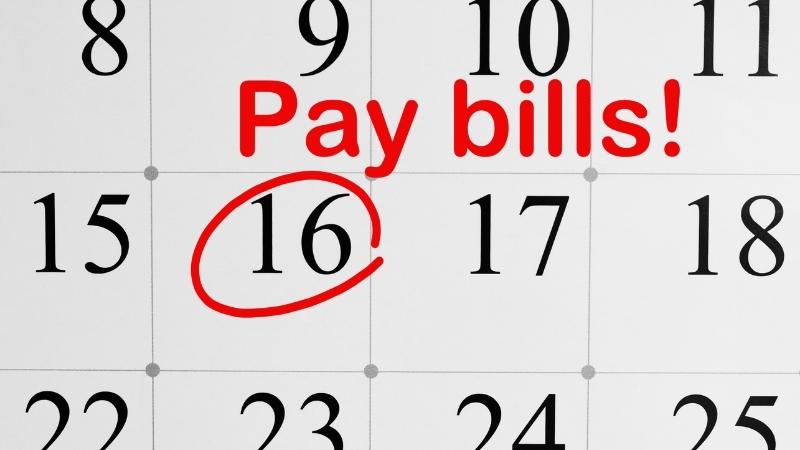
This is another bad habit that can lead to debt and other financial problems. If you don’t pay your bills on time, you’ll likely end up with late fees or interest charges.
Bad money habits examples #3. Buying things before saving up enough cash
Some bad money habits examples include buying things before saving up enough cash. This is bad because you may end up overspending and then regretting it later on down the road!
More Reading – How to save $10,000 in 6 Months
Bad money habits examples #4. Taking out loans for unnecessary purchases
There are a few bad money habits that can lead to debt. One of them includes taking out loans for unnecessary purchases such as a new car or vacation.
Bad money habits examples #5. Paying too much attention to the price tag
Some bad money habits examples include paying too much attention to the price tag and not looking at what’s inside of it. This bad habit can lead people into buying things they don’t need, which will only add up in debt over time!
The best way to avoid this bad habit is to think about what you really need and want, not just what’s the cheapest.
Bad money habits examples #6. Not being organized
This bad money habit can lead to a lot of missed opportunities when it comes to saving money. If you’re disorganized, you may not know how much money you have or where it’s all going. This can be a major problem, especially if you’re trying to save for something specific.
Bad money habits examples #7. Overspending
This bad money habit is pretty self-explanatory! When people overspend, they often find themselves in debt and scrambling to make ends meet. Avoid this bad habit by creating a budget and sticking to it!
Bad money habits examples #8. Not paying attention to your credit score
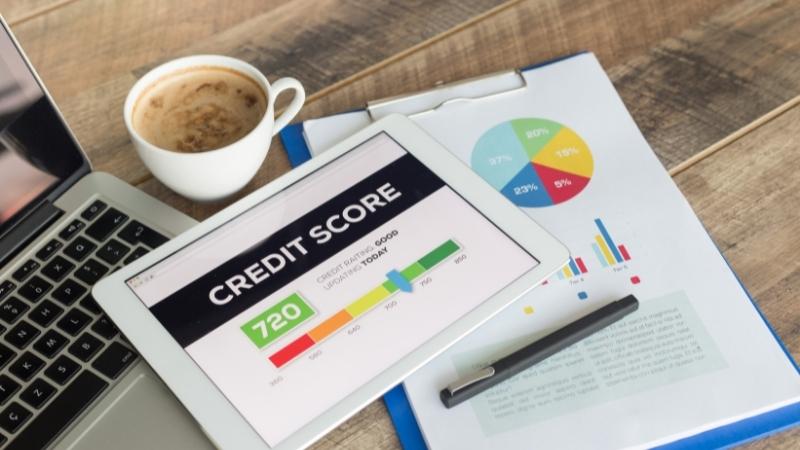
Your credit score is important! A bad credit score can lead to a lot of financial problems down the road. Make sure you’re paying attention to your credit score and working on improving it if necessary.
Bad money habits examples #9. Buying things you don’t need
This bad habit can be very costly over time! Avoid buying things you don’t need by creating a list of needs and wants. This will help you to stay on track when it comes to spending and avoid overspending.
More Reading – Things to stop buying to save money
Bad money habits examples #10. Not asking for discounts
Many people don’t ask for discounts when they buy things, which is a bad money habit. If you don’t ask, you’ll never know if you could have gotten a better deal!
Bad money habits examples #11. Underestimating your expenses
This bad money habit can lead people into debt because they’re not prepared for their monthly expenses. Make sure you’re estimating your expenses correctly and factoring in everything, including bills and food costs.
Bad money habits examples #12. Not checking bank statements
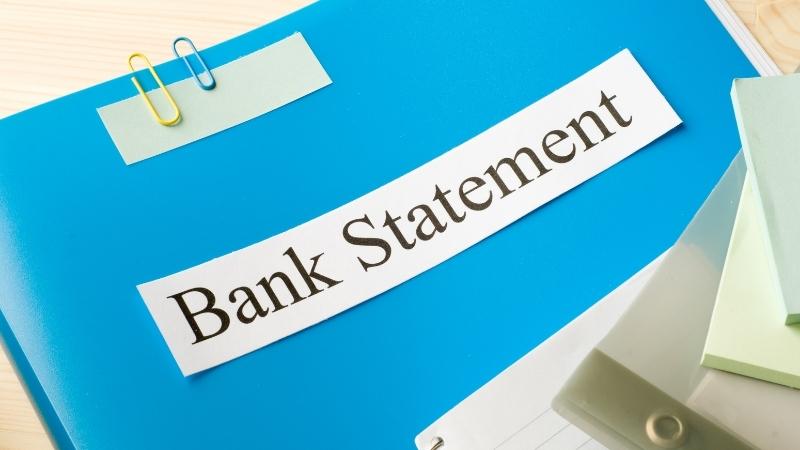
People often forget to check their bank statements, which is a bad money habit. This can lead to missed charges and other problems down the road. Make sure you’re checking your bank statements regularly so you can keep track of your spending.
Bad money habits examples #13. Not setting financial goals
This bad money habit can be a big problem because people don’t have anything to work towards when it comes to their finances. Without any goals, it’s tough to stay motivated and make progress. Make sure you’re setting financial goals for yourself and working towards them each month!
More Reading – Personal financial planning process
Bad money habits examples #14. Not having a savings account
This bad money habit can be very costly down the road. If something unexpected happens, you’ll have no funds saved up to cover the costs. Make sure you have a savings account and start putting money into it each month.
Bad money habits examples #15. Not having emergency funds
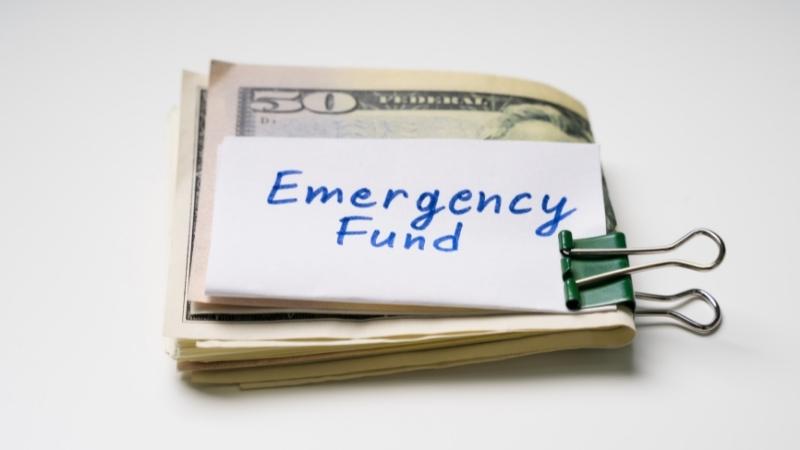
This bad money habit can lead people into debt because they don’t have any emergency funds available if something unexpected happens. Make sure you’re setting aside a certain amount of money each month for emergencies, so when the time comes, there will be enough cash on hand.
Bad money habits examples #16. Not asking for help
This bad money habit can be a big problem because people don’t want to ask for help when it comes to their finances. If you’re struggling, make sure you reach out to someone for help! There are many resources available that can guide you in the right direction.
Bad money habits examples #17. Spending impulsively
This bad money habit can be very costly over time! Avoid spending impulsively by thinking about what you really need and want. If you’re not sure if you should buy something, wait a few days before making a decision. This will help to avoid impulse buys.
Bad money habits examples #18. Not tracking expenses
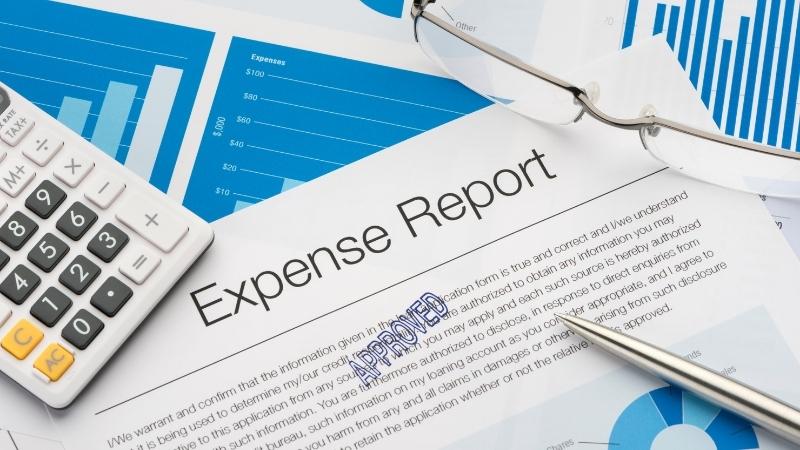
People often forget to track their expenses, which is a bad money habit. This can lead to missed charges and other problems down the road. Make sure you’re tracking your expenses regularly so you can keep track of your spending.
Bad money habits examples #19. Ignoring bills
This bad money habit can be very costly over time! Avoid ignoring bills by making a budget that includes all of your necessary payments each month. If something unexpected happens, you’ll have enough money saved up to cover any unexpected costs.
Bad money habits examples #20. Spending more than you earn
This bad money habit can be very costly over time! Avoid spending more than you earn by creating a budget that includes all of your expenses each month and sticking with it. Not negotiating prices on big purchases: Many people don’t negotiate prices when they buy things, which is a bad money habit. If you don’t ask, you’ll never know if you could have gotten a better deal!
Bad money habits examples #21. Not having insurance
This bad money habit can be very costly down the road. Make sure you’re getting insurance for yourself and your family members. This will help to protect you in the event of an unexpected accident or illness.
Bad money habits examples #22. Not investing
This bad money habit can be very costly over time! Investing your money is one of the smartest things you can do for yourself, and it’s never too late to start. Make sure you’re investing in a solid investment plan that fits with your goals and needs. You can try commission free investing apps like Robinhood.
Bad money habits examples #23. Not saving for retirement
This bad money habit can be very costly over time! Saving for retirement should be done early on, so you’ll have enough funds saved up when the time comes. Make sure you’re putting away at least 15% of your income each month towards a retirement account such as an IRA or 401k plan.
Bad money habits examples #24. Buying things you don’t need
This bad money habit can be very costly over time! Avoid buying things you don’t need by evaluating your needs and wants. If something isn’t a necessity, chances are you don’t need it.
Bad money habits examples #25. Paying credit card interest
This bad money habit can be very costly over time! Avoid paying credit card interest by paying off your balance each month. If you can’t afford to pay off the entire balance, try to at least pay off more than the minimum amount due. This will help to reduce the amount of money you’re paying in interest.
Bad money habits examples #26. Borrowing money from friends and family
This bad money habit can be very costly over time! Avoid borrowing money from friends and family by saving up for big purchases instead. If there’s an emergency, you’ll be prepared with cash on hand or access to credit cards and other resources that can help cover unexpected costs.
Bad money habits examples #27. Using payday loans
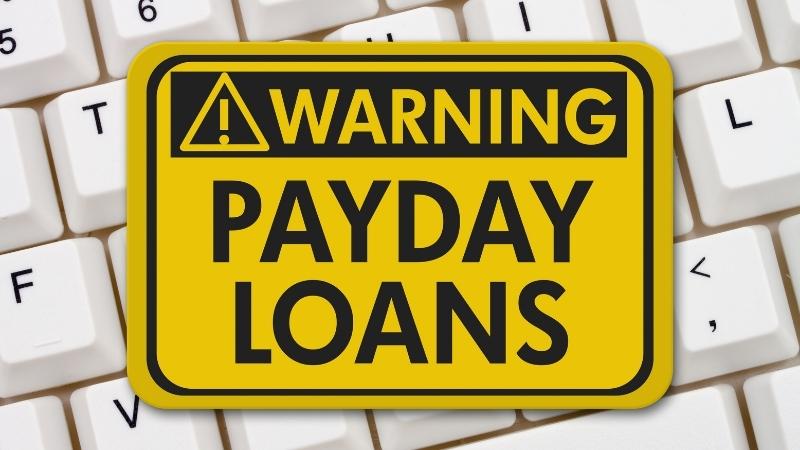
This bad money habit can be very costly over time! Avoid using payday loans by building up enough savings so you won’t have to borrow money in a pinch. If you do end up needing to use one, make sure it’s only for emergencies and that you pay off the loan as soon as possible so interest doesn’t accrue.
Bad money habits examples #28. Paying late fees
This bad money habit can be very costly over time! Avoid paying late fees by making payments before they’re due. This will help to keep your finances in order and prevent you from accruing additional fees.
Bad money habits examples #29. Not tracking net worth
People often don’t track their net worth, which is a bad money habit. This can lead to missed charges and other problems down the road. Make sure you’re tracking your net worth regularly so you can see how you’re doing financially. This will help you to make better money decisions in the future.
Bad money habits examples #30. Don’t spend everything you earn
One of the worst bad money habits is spending everything you earn. This can lead to financial problems down the road. Try to live within or below your means so you have enough money left over for savings and investments.
Bad money habits examples #31. Putting off financial decisions
Putting off important financial decisions until later and then finding yourself stuck with high-interest rates or bad terms from lenders who won’t negotiate better deals for you because they know how desperate you are right now!
Bad money habits examples #32. Day Trading

Day trading hoping to beat the market, this bad habit will be very costly over time! You can have some wins but your losses will be far more. Investing your money is one of the smartest things you can do for yourself, and it’s never too late to start.
Make sure you’re investing in a solid investment plan that fits with your goals and needs.
Other bad money habits examples include:
- Charging expenses to credit cards without paying them off in full each month.
- Buying lottery tickets or other forms of gambling that could potentially lose money.
- Investing in risky or fraudulent schemes hoping they will eventually work.
- Failing to get out of bad investments and bad loans quickly enough.
- Not investing your money wisely, such as by buying stocks or real estate instead of saving it in a bank account.
- Bad credit history for many years and don’t know what to do about it;
- Not knowing how to use credit cards properly and ending up with high-interest rates.
- Falling for scams or being too trusting of others when it comes to investing money.
- Shopping when bored, sad or depressed.
- Not setting a budget for the month and then spending all of your money on frivolous things like clothes or going out.
- Cashing out your 401k when you change jobs which will incur taxes and penalties for early withdrawals.
- Overpaying for cable TV, not comparison shopping for car insurance or other monthly bills, and failing to create and stick to a budget are just some of the bad money habits that can lead to bad credit scores over time.
How do I get rid of bad money habits?
There are many other bad money examples not covered here but If you’re struggling with bad money habits, the best thing to do is to start small. Try making a budget that includes all of your expenses each month and sticking with it.
This will help you to avoid overspending on things like food, clothes, entertainment, and other unnecessary expenses. You can also try investing in a solid investment plan that fits with your goals and needs. This will help you to grow your money over time and be prepared for anything that might come your way.
Good Money Habits Examples to build-up
Here are good money habits examples that you should instead build-up:
1. Tracking expenses
This good money habit can help you to see where your money is going each month. This information can be helpful when creating a budget or when trying to save money.
2. Saving for retirement
This good money habit can help you to have a secure financial future. Make sure you’re putting away at least 15% of your income each month towards a retirement account.
3. Having an emergency fund
This good money habit can help you to have a cushion in case of an unexpected expense or emergency. Make sure you’re putting away at least three months of expenses in a savings account.
4. Paying off debt
This good money habit can help you to reduce the amount of money you’re paying in interest. Make sure you’re paying more than the minimum amount due on any debts and working towards paying them off as quickly as possible.
5. Investing wisely
This good money habit can help you to build wealth over time. Make sure you’re investing in a solid investment plan that fits with your goals and needs.
6. Planning for future expenses
This good money habit can help you to budget for upcoming expenses so there’s no surprises. Make a list of all the things you’ll need to spend money on in the next year and start budgeting for them. This will help you to stay on track financially.
7. Living below your means
This good money habit can help you to save more money each month. Try to live within or below your budget so you can put more money towards savings or debts.
8. Buying in bulk
This good money habit can help you to save money on groceries and other household items. Try to buy larger quantities of things that you need so they last longer and see if there are deals available on bulk purchases.
9. Finding discounts
This good money habit can help you to save money on everything from clothes to travel. Make sure you’re taking advantage of any discounts available so you can stretch your budget further.
10. Learning new skills
Learning a new skill may lead to good money habits. This action can allow you to possibly earn more money and advance your career.
Make sure you’re always learning and expanding your knowledge so you can be more valuable at work, which might lead to a raise or promotion.
People who learn new skills are more likely to also develop good money habits.
11. Tracking net worth

People often don’t track their net worth, which is a bad money habit. This can lead to missed charges and other problems down the road. Make sure you’re tracking your net worth regularly so you can see how you’re doing financially. This will help you to make better money decisions in the future.
12. Review your bank statements
It’s also a good idea to review your bank statements regularly to make sure there are no fraudulent charges or mistakes. If you notice anything strange, be sure to contact your bank immediately. By following these tips, you can avoid bad money habits and keep your finances in order.
13. Increase your savings
If you want to save more money, one of the best things you can do is to increase your savings rate. Try to put away at least 15% of your income each month towards a retirement account and an emergency fund.
14. Pay yourself first
Another good money habit is paying yourself first. Make sure you’re putting away at least 15% of your income each month towards a retirement account, an emergency fund, and other savings goals. This will help you to reach your financial goals sooner.
Final thoughts – Bad Money Habits Examples
Bad money habits are bad because they can lead to debt and other financial problems. The best way to avoid bad money habits is by taking action now. Start saving money, reducing debt, and investing wisely to build wealth over time.
Finally, remember that it’s never too late to change your bad money habits. By following these tips, you can overcome any financial challenges you may face and achieve your financial goals.
Over to you
Have you ever overcome any bad money habits before? If so please share with us how you did it!
Latest Articles
- Why is Personal Finance Dependent Upon Your Behavior?
- Hosting an Online Garage Sale: Go from Clutter to Cash now
- 11+Cheap(or Free) things to do in retirement: Do more with less!
- Coast FIRE: Path to Financial Independence with Less Sacrifice
- Cash Stuffing Method: The Ultimate Financial Hack You Need to Know